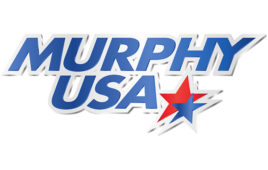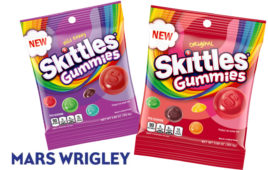Convenience stores can play a vital role in combating human trafficking.
January marks Human Trafficking Awareness Month, and Convenience Store Decisions (CSD) along with other industry media groups are joining with the National Association of Convenience Stores (NACS) to assist in combating human trafficking.
Together, CSD, Convenience Store News, CSP and NACS will help raise awareness of how communities can combat human trafficking in communities. Collectively the monthly magazines published by each group reach more than 350,000 convenience store industry thought-leaders.
The convenience and fuel retailing industry, with 155,000 stores across the United States, plays a valuable role in communities it serves, from contributing more than $1 billion a year to charities to helping address important community-focused issues. The industry works with groups that are active in serving as neighborhood watch groups, including the U.S. Department of Homeland Security’s Blue Campaign, the National Safe Place Network and In Our Backyard’s Convenience Stores Against Trafficking (CSAT) program.
Convenience stores can play an important role in fighting human trafficking by raising the profile of key issues in communities and, with extended hours of operation, serve as a safe haven in communities.
“U.S. convenience stores serve 165 million customers a day in every community, and most of these businesses are open 24/7. Our industry is well equipped to share important messages in stores so that employees and customers can collectively create the equivalent of a neighborhood watch program in their communities,” said NACS Vice President of Strategic Industry Initiatives Jeff Lenard.
Consumers increasingly say that they will support companies that support their communities. A September 2018 NACS Consumer Survey found that 49% of consumers—and 61% of Millennials—say they are more likely to support companies that participate in community projects or donate to charitable causes.
NACS and 87 convenience store chains and other industry-related groups are utilizing In Our Backyard’s CSAT program, the group’s most successful outreach activity that has trained more than 13,000 convenience stores on how to respond appropriately and safely to incidents of human trafficking.
“Our partners have been shining examples of our ‘We’re not just convenient; we care!’ tagline,” said In Our Backyard Program Director Juliana Williams. “Most importantly, lives are being saved because victims are calling the National Human Trafficking Hotline from convenience store restrooms and employees are calling to share tips about suspected traffickers and victims who may need help.”
CSAT provides awareness, education and life-saving materials at thousands of locations across the country. In addition to employee training on recognizing and safely reporting the signs of human trafficking, CSAT also provides Freedom Stickers, which contain the National Human Trafficking Hotline number, to be posted in restroom stalls—often the only place a victim of human trafficking is alone and safe enough to reach out for help. Learn more about the program at www.convenience.org/csat.
U.S. Department of Homeland Security’s (DHS) Blue Campaign also is working with the convenience retailing industry. In 2017, NACS worked with DHS to provide convenience retailers with access to free NACS-branded DHS Blue Campaign training and awareness materials for download—including posters, handouts and other materials. DHS developed The Blue Campaign to work with organizations and businesses, such as gas stations, truck stops and convenience retailers, to raise awareness of human trafficking. To learn more, visit www.convenience.org/dhs.
National Human Trafficking Awareness Day is recognized each year on Jan. 11. To raise awareness of human trafficking, the Blue Campaign asks people to take photos of themselves, friends, family, and colleagues on that day wearing blue and share them on social media – Facebook, Twitter, Instagram – along with #WearBlueDay hashtag. Learn more at https://www.dhs.gov/blue-campaign/wearblueday. Additionally, In Our Backyard will be posting on Facebook and Instagram throughout the month and on Jan. 11 and ask people to post a picture of a stop sign and say why stopping human trafficking matters. Tag @inourbackyard in the picture and use the hashtags: #stoptrafficking, #inourbackyard, and #WhyIFightHT.
“Representing one-third of all retail stores in the United States, convenience stores don’t just sell products and services that people enjoy; they make a difference in their communities and help address important national initiative groups at a local level,” said Lenard.
For more on how c-stores are fighting human trafficking: https://cstoredecisions.com/2018/11/29/c-stores-combat-human-trafficking/




